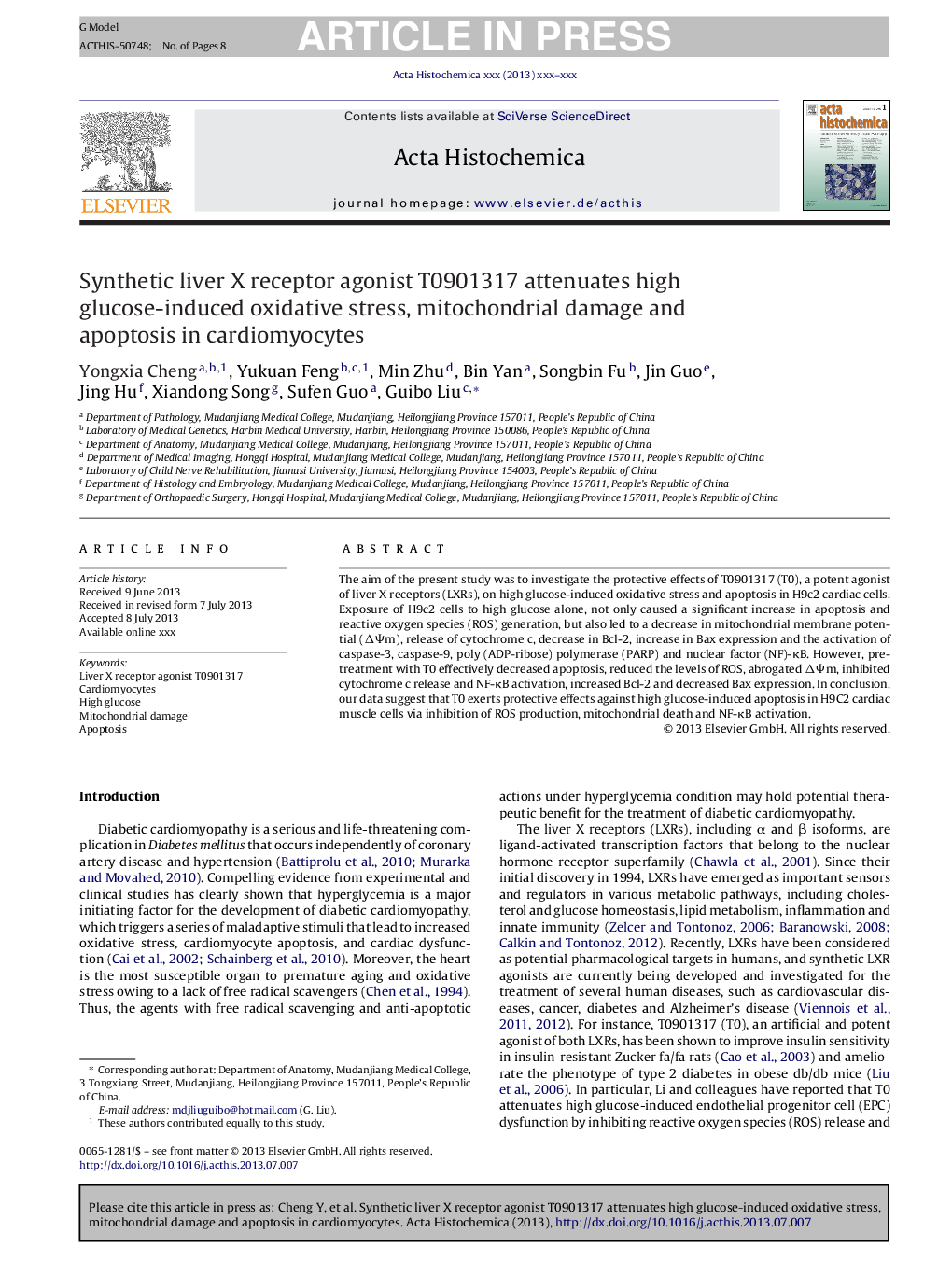| Article ID | Journal | Published Year | Pages | File Type |
|---|---|---|---|---|
| 10747206 | Acta Histochemica | 2014 | 8 Pages |
Abstract
The aim of the present study was to investigate the protective effects of T0901317 (T0), a potent agonist of liver X receptors (LXRs), on high glucose-induced oxidative stress and apoptosis in H9c2 cardiac cells. Exposure of H9c2 cells to high glucose alone, not only caused a significant increase in apoptosis and reactive oxygen species (ROS) generation, but also led to a decrease in mitochondrial membrane potential (ÎΨm), release of cytochrome c, decrease in Bcl-2, increase in Bax expression and the activation of caspase-3, caspase-9, poly (ADP-ribose) polymerase (PARP) and nuclear factor (NF)-κB. However, pretreatment with T0 effectively decreased apoptosis, reduced the levels of ROS, abrogated ÎΨm, inhibited cytochrome c release and NF-κB activation, increased Bcl-2 and decreased Bax expression. In conclusion, our data suggest that T0 exerts protective effects against high glucose-induced apoptosis in H9C2 cardiac muscle cells via inhibition of ROS production, mitochondrial death and NF-κB activation.
Related Topics
Life Sciences
Biochemistry, Genetics and Molecular Biology
Biochemistry
Authors
Yongxia Cheng, Yukuan Feng, Min Zhu, Bin Yan, Songbin Fu, Jin Guo, Jing Hu, Xiandong Song, Sufen Guo, Guibo Liu,
